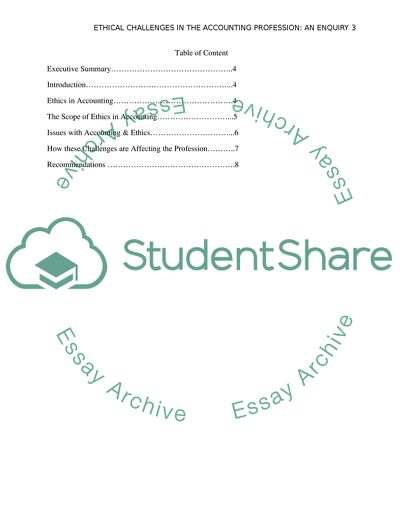Cite this document
(Ethical Challenges in the Accounting Profession Research Paper - 1, n.d.)
Ethical Challenges in the Accounting Profession Research Paper - 1. Retrieved from https://studentshare.org/human-resources/1750466-ethics-in-the-accounting-field
Ethical Challenges in the Accounting Profession Research Paper - 1. Retrieved from https://studentshare.org/human-resources/1750466-ethics-in-the-accounting-field
(Ethical Challenges in the Accounting Profession Research Paper - 1)
Ethical Challenges in the Accounting Profession Research Paper - 1. https://studentshare.org/human-resources/1750466-ethics-in-the-accounting-field.
Ethical Challenges in the Accounting Profession Research Paper - 1. https://studentshare.org/human-resources/1750466-ethics-in-the-accounting-field.
“Ethical Challenges in the Accounting Profession Research Paper - 1”, n.d. https://studentshare.org/human-resources/1750466-ethics-in-the-accounting-field.


